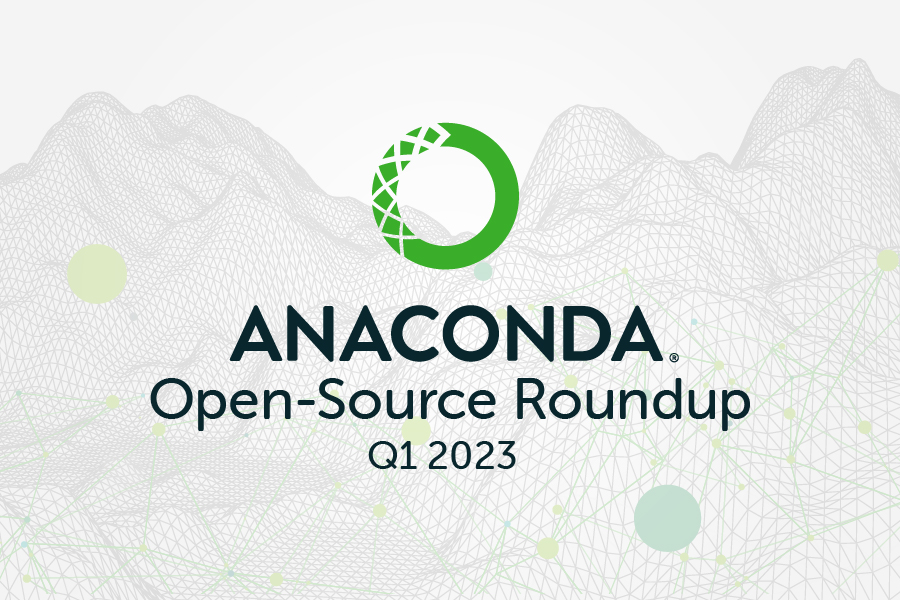Anaconda’s Q1 2023 Open-Source Roundup


The upcoming 2023.03 release of Anaconda Distribution includes Python 3.10 and several critical package updates, with more to follow in the coming months.
We are pleased to announce the upcoming release of the Anaconda Distribution 2023.03 installer, scheduled for March 2023. The Anaconda Distribution 2023.03 installer comes with support for Python 3.10 and an updated Anaconda Navigator 2.3.2.
To strengthen our machine learning package offerings, we have included Transformers and imbalanced-learn with the latest Anaconda Distribution 2023.03 installer.
Additionally, Anaconda Distribution 2023.03 installer comes with updated top-level packages, including NumPy, SciPy, Matplotlib, pandas, scikit-learn, and more.
Python 3.11 support will be available in the main repository, making this one of Anaconda’s biggest releases yet! Python 3.11 features many user-facing and backend improvements that make it easier than ever for practitioners to get projects up and running quickly. Python 3.11 has 10-60% speed improvements over Python 3.10.
Python 3.11 improvements and new features include faster startup times, function annotations such as type hints, asynchronous generators, new string methods, and more! To read the full release notes, refer to Python’s 3.11 release documentation.
This spring, Anaconda will begin distributing Tensorflow 2.11, which brings new modeling and optimization capabilities as well as features that help users better manage their workflows. Notable updates include the enhancement to DTensor for synchronous distributed computing, newly added modeling capabilities in Keras such as the new GroupNormalization layer and StructuredTensor, as well as native support for TensorFlow Decision Forests Models in TensorFlow Serving. For more detailed information, refer to TensorFlow’s release blog.
Anaconda also plans to release Numba 0.57 this spring. Numba is an open-source just-in-time (JIT) compiler that translates Python code into optimized machine code, allowing users to run code faster without having to write it in a low-level language like C or C++.
Numba 0.57 will be the first release with support for Python 3.11, LLVM 14.0.0, and NumPy 1.24 and CUDA support for newly released NVIDIA GPUs (in addition to various improvements for NumPy support). Numba 0.57 also brings a number of updates, such as improved performance on 64-bit Windows machines, new support for functions with keyword arguments, better debugging capabilities, and more! Practitioners can expect improved performance when running complex calculations and models written in Python.
As mentioned in the 2022.10 release, Anaconda only provides active support for up to three major versions of Python with any given distribution release. In accordance with this release and support schedule, new package builds and ongoing maintenance for Python 3.7 will cease on March 1 2023. Additionally, ongoing support for Python 3.8 will end later this year following the Python 3.11 update.
Accordingly, we recommend that users plan their upgrades to versions of Python supported by Anaconda (3.8 or later). If you or your team need to run critical workloads using versions of Python not actively supported by Anaconda, please contact us to learn about our long-term support services.
We hope you’re as excited for Anaconda Distribution 2023.03 as we are! For release updates, keep an eye on our blog and visit our Anaconda package repositories news page on Anaconda Nucleus.
Talk to one of our experts to find solutions for your AI journey.